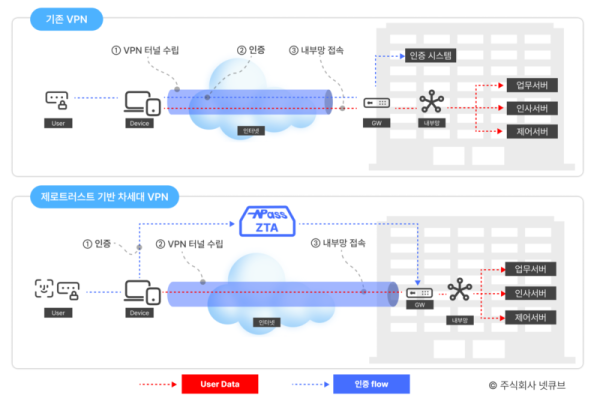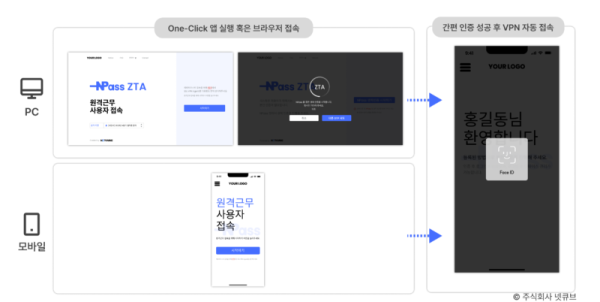NetCube Launches Next-Generation Zero Trust VPN Solution 'NPass ZTA'
- 2024-03-15
NetCube Inc., a specialized network and communication software development company, has launched the next-generation Zero Trust VPN solution 'NPass ZTA'.
NetCube Inc. Logo
NetCube Inc. has recently completed the development of 'NPass ZTA', a next-generation VPN solution based on Zero Trust, to overcome the limitations of existing VPN technologies. Specifically, the solution addresses concerns about attacks through externally exposed gateways and the previous requirement to open entire corporate network assets. The company is currently rolling out services to large-scale commercial customers.
Traditional VPNs require employees working remotely to first connect to an internet-exposed VPN gateway and create a tunnel before performing user authentication. In contrast, the newly developed 'NPass ZTA' operates by first authenticating employees through biometric authentication on personal smartphones and then establishing a tunnel through a gateway that is not exposed externally. Additionally, it features the ability to expand traditional SSL VPN gateways to a Zero Trust basis without modifying firmware.
Comparison between Traditional VPN and Next-Generation Zero Trust VPN
NetCube has been supplying the 'NPass' enterprise-wide wired and wireless integrated authentication system and IP mobility solution to major domestic and international companies through its own technological development for over 10 years. The company has secured multiple customers operating business networks with over 10,000 users. The newly launched 'NPass ZTA' was developed based on the company's enterprise network self-service portal (NPass SSP) technology, with the key advantage of maximizing convenience by allowing employees to register simple authentication for next-generation VPN and then access PC and mobile Zero Trust connections with a single click.
NPass ZTA Simple Access Procedure
CEO Dong-ho Yoo of NetCube Inc. stated, "This Zero Trust-based next-generation VPN solution addresses the challenges of increasingly flexible work environments like remote work and complex corporate IT resource access management. It enables companies to connect internal resources and external users through a safer pathway, allowing employees to use the solution autonomously and intuitively according to internal security policies, thereby improving both security and convenience."


